
August 17, 1959, was an idyllic, warm summer evening along the Madison River in Southwestern Montana west of Yellowstone National Park. There was a camaraderie among the campers basking in the picturesque setting and moonlit sky. Families became friends, dogs chased a black bear out of camp and up a nearby tree, and many enjoyed roasting marshmallows over their campfires at dark. Life couldn't have been better... until 11:37 p.m.
A 7.3 magnitude earthquake hit the Hebgen Lake region causing the mountain at the mouth of the river, close to where it flowed toward the prairie, to break lose carrying roughly 50 million cubic yards of rock 100 mph hour down the slope partially burying Rock Creek campground as it flowed up the north side of the canyon. Hurricane-force winds ahead of the slide snapped trees that were four feet in diameter, tossed the enormous cars of the day, along with people and debris, and the blocked Madison River immediately began flooding the area.
Larry E. Morris, historian and author of the book, The 1959 Yellowstone Earthquake, quoted survivor S. B. Gilstad who rightly stated, "The roar sounded like the end of the world."
THE NIGHTMARE BEGINS
And this was precisely the case for 19 people camped at the Rock Creek Campground who were instantly buried under 73 million metric tons of rumble. But for the over 250 people staying in the Madison River Canyon area, the initial quake was just the beginning of a harrowing ordeal.
Ellen Butler, Earthquake Lake Visitor Center manager and co-author of Images of America: Earthquake Lake, said this was a popular recreation spot during the summer.
"There were multiple resorts in the area. The Campfire Lodge is still there. Rock Creek Campground was over capacity so people were camping all over the place."
Diese Geschichte stammt aus der October 2023-Ausgabe von Rock&Gem Magazine.
Starten Sie Ihre 7-tägige kostenlose Testversion von Magzter GOLD, um auf Tausende kuratierte Premium-Storys sowie über 8.000 Zeitschriften und Zeitungen zuzugreifen.
Bereits Abonnent ? Anmelden
Diese Geschichte stammt aus der October 2023-Ausgabe von Rock&Gem Magazine.
Starten Sie Ihre 7-tägige kostenlose Testversion von Magzter GOLD, um auf Tausende kuratierte Premium-Storys sowie über 8.000 Zeitschriften und Zeitungen zuzugreifen.
Bereits Abonnent? Anmelden
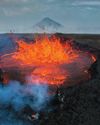
THE BRIGHT SIDE OF VOLCANIC ROCK
As a mineral resource, volcanic rock is decidedly short on glamour.
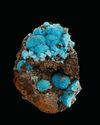
The Other Copper Minerals
12 Lesser-known Collectible Species

MINERAL COLLECTING -AND ROCK & GEM
Evolving Together FOR 54 YEARS

Gemstone Trends
A Look Back at 2024 & What to Expect in 2025
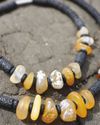
How to Make a GEM BEAD NECKLACE
No Lapidary Experience Needed!
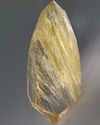
Framing Nature's Art
Faceting Rutilated Quartz for Beginners
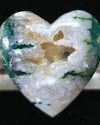
BEDAZZLED BLUE SEAM AGATE
More than several centuries ago, mining was the profession most often seen as befitting of men.
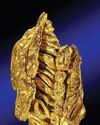
ROCK & GEM FIELD GUIDE:
Spinel is a captivating gemstone with a rich history of being mistaken for gems like ruby and sapphire.
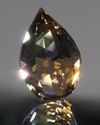
SNAKE SCALE DROP 1.5:1
This Faceting Focus is revisiting the briolette gemstone design because of its popularity with independent and hobby gemstone faceters.

STONE CHIC
How Earth-Inspired Decor Brings Comfort to our Home